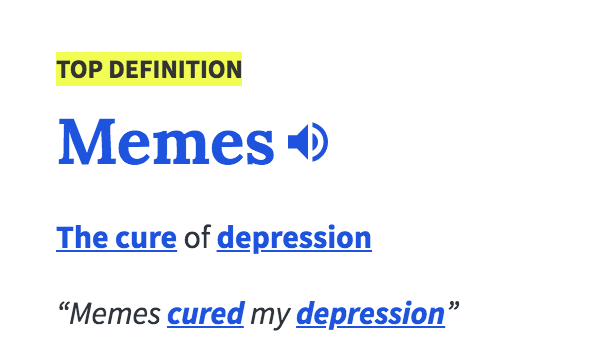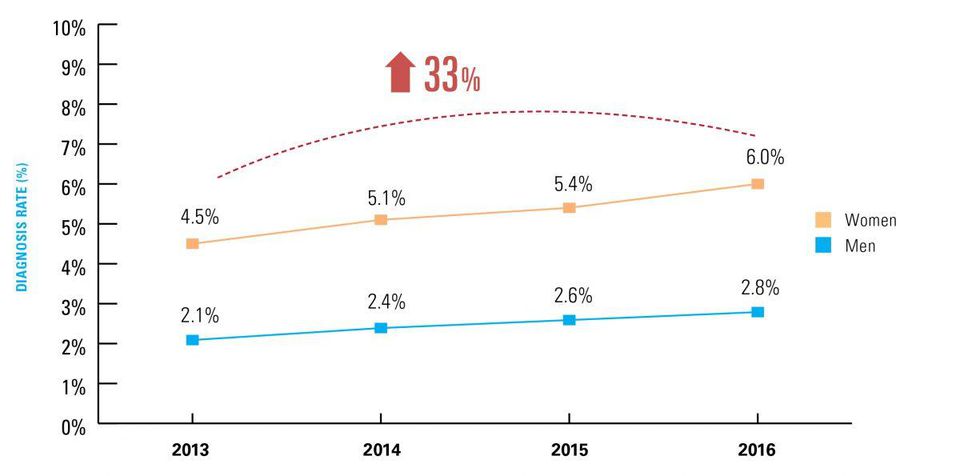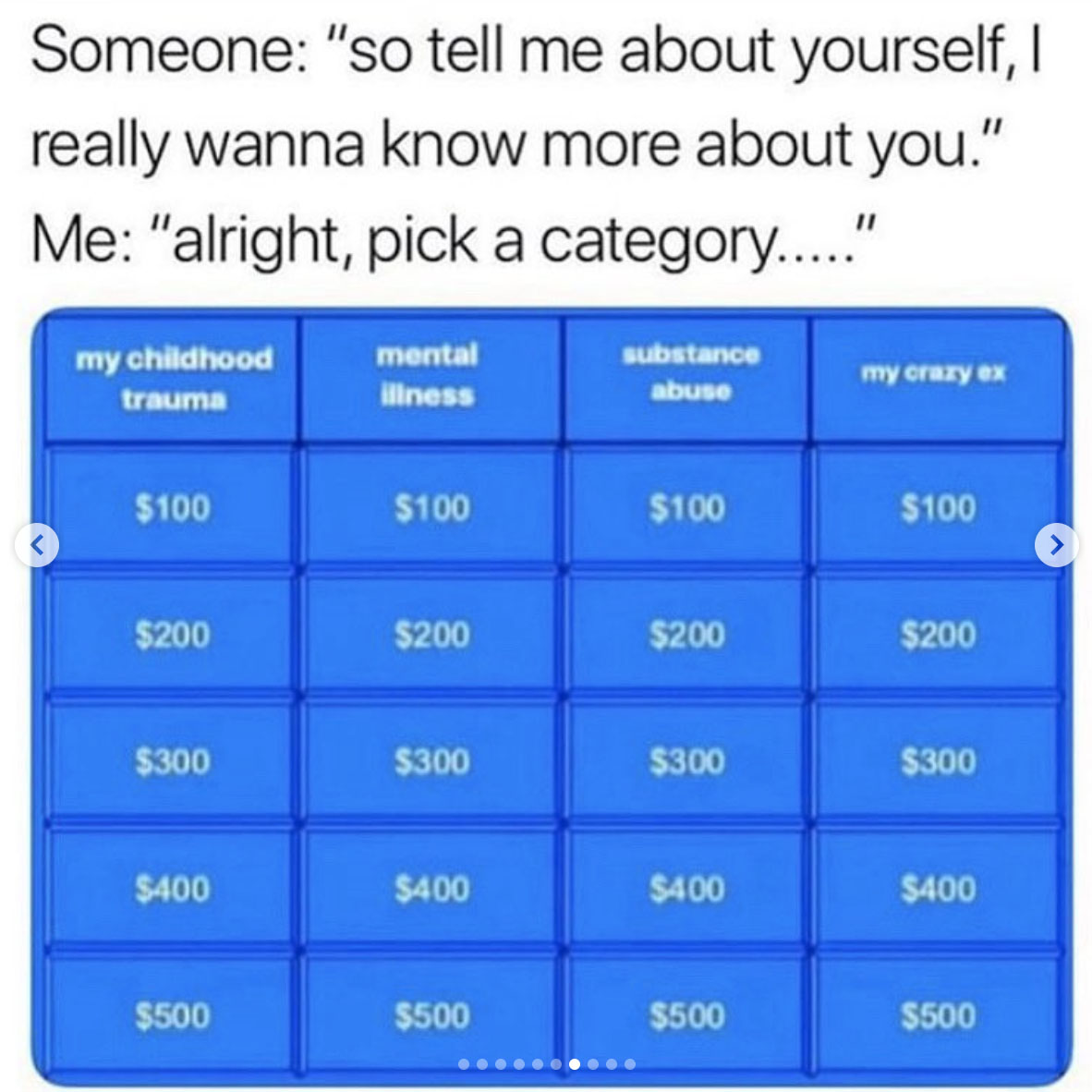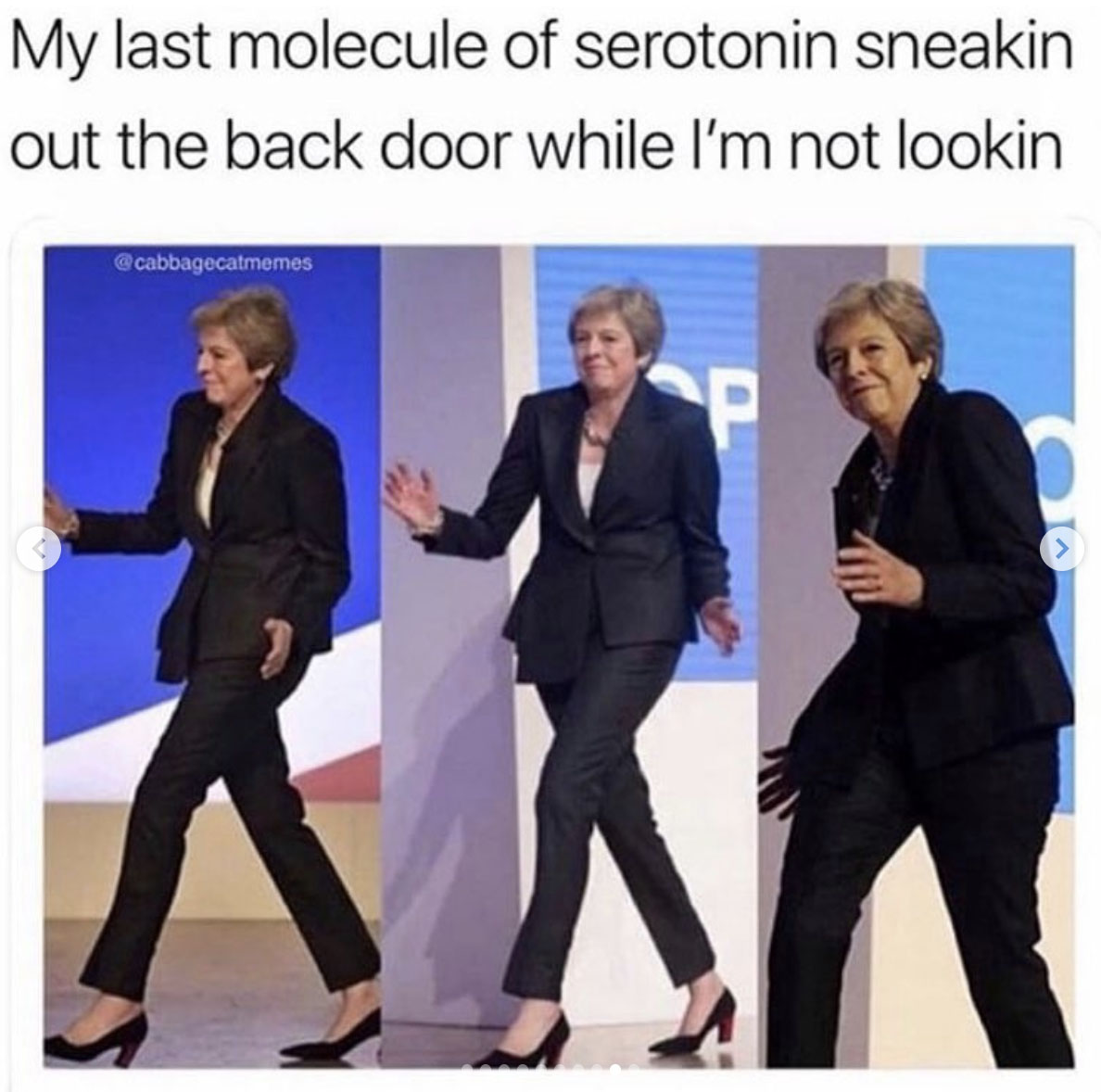For a group of best friends at the University of Southern California, exchanging depression memes is a way to open up conversations and provide support for each other in dealing with their diagnoses. For clinically depressed young people, memes involving dark themes of mental illness and giving up don't have to be offensive. To many, they're therapeutic. More than that, they're an efficient and effective way to express negative emotions in a society that has an increasingly short attention span.
Memes have been around since the internet was created but have developed and changed in their level of cynicism. Simple-minded humor has morphed into content that deals with sensitive topics like depression, which builds comedic value for those who enjoy making light of the way the feel.
Urban Dictionary's top definition of "meme," a term that's become universally recognizable, is "the cure of depression." The more formal Merriam-Webster calls it an "amusing or interesting item (such as a captioned picture or video) or genre of items that is spread widely online especially through social media." With these classifications, we know that memes are supposed to be uplifting.
So, what's so uplifting about laughing over mental illness?
Sarah LaBonty is a USC junior who's involved, academically successful and is nothing short of a social butterfly. She exudes confidence and sarcasm, makes people laugh with her quick wit and always has clever commentary to add to conversations.
Although these qualities are not stereotypically affiliated with someone who struggles mentally or emotionally, she deals with depression and has for a while.
"There used to be no one in high school I could talk to about depression, or that I was on antidepressants or that I hated my body," explained LaBonty. "I couldn't talk about it, and there was a lot of stigmatization. I would deny that anything was wrong with me."
Things have changed for her since arriving at USC, though, in part due to a group of five friends she found with similar feelings and diagnoses. They have an Instagram direct messaging (DM) group titled "depression is funny," started by LaBonty almost a year ago, in which they exchange memes that make light of the feelings they encounter on a daily basis. Some members have diagnosed depression, while others do not but relate to the others' sentiments. LaBonty thinks the recent proliferation of this content can be attributed to a more transparent and accepting attitude towards mental illness.
"Once I got to college, the [depression] memes started happening," said LaBonty. "We've had memes for 10 years, but I think these past few years' [memes] have been focusing on mental health because everybody's being more honest and real about it."
For LaBonty and her friends, sharing memes is an alternative way to feel better that doesn't involve going to therapy; something she says no one in her group is a fan of.
"I've only been to a behavioral therapist and they don't really give you coping mechanisms, they just listen to you," said LaBonty. "I don't have a lot of money laying around since I'm at USC and I'm not going to a USC therapist, so I'd prefer to not go to one." She says she also uses books and meditation as ways to understand and cope with her depression.
Nick and Eli are senior roommates at USC who have asked to be identified by their first names only. Like LaBonty, the meme group is an outlet for them to communicate and become closer with their friends.
"We were all really good friends before, and then when we started the group it brought people closer together who were already friends," said Nick. "Joking about things that are actually really awful in your life is kind of like a release. We used to make the jokes to each other outside of the group." Now, they have a convenient way to make each other laugh over social media in addition to doing so in-person.
For LaBonty, Nick, Eli and the other "depression is funny" members, the meme group serves as a smaller community within a community. They take comfort in the fact that people they associate with share the same feelings and frustrations as they do.
LaBonty says "depression is funny" is certainly not the only depression-focused meme group including USC students or other social media users she affiliates with, showing how the content has become an epidemic.
"I think almost every girl in my organization at school is in a meme group chat, and half of them are very depressing or alcohol and drug focused," said LaBonty.
"There's a lot of good memes on the internet that are about depression, and I guess the best way of coping is just laughing about your mental illnesses," LaBonty said. "We are all just best friends, and I guess a lot of people benefit from other people's painful realities.
The quick exchange of this online content is something that psychologist Valerie Maxwell says suits people's shrinking attention spans. She specializes in dealing with patients diagnosed with depression, including many adolescents, and opened an ADD Diagnosis and Treatment Center in Manhattan Beach where she's located.
"It could just be a fad...memes are kind of cute and you don't have to think too deeply about them," said Maxwell. "It's cartoonish. I just think it's the mode of communication right now because the current global war is over people's attention. If my friend asks ‘hey, how was yesterday?' I can just send a meme. So it's about attention span, which is diminishing. It's impacting how people read and how people think."
With depression and suicide rates among young Americans at all time highs, it makes sense that there is far more negativity in the air, as well as a bigger push to encourage people to be open about their feelings. This paired with the convenience and humor that memes bring make the popularity of depression memes unsurprising.








